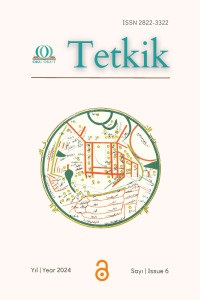Halk İnançları Bağlamında Kelâm İlminin Güncellenmesi
Updating the Science of Kalām in the Context of Folk Beliefs
Author(s): Ethem KaraçobanSubject(s): Customs / Folklore, Sociology of Culture, Contemporary Islamic Thought, Sociology of Religion, Qur’anic studies
Published by: Oku Okut Yayınları
Keywords: Kalām; Faith; Beliefs; Folk Beliefs; Culture;
Summary/Abstract: The subject matter of Kalām has evolved throughout history, with certain aspects added to its topics in accordance with the needs of the time. As a matter of fact, while the subject of Kalām initially consisted of subjects such as the unity and attributes of Allah, takfir and destiny, as a result of the articulations, everything known was included in the subject of Kalām. The unchanging subject of Kalām is the basic principles of belief. The sciences used to explain or defend these basic principles may vary over time. In today’s context, in line with these approaches, the social dimension of Kalām is discussed by stating that Kalām is of interest to the individual due to many interests, beliefs, attitudes and behaviors. One of the issues discussed in this context is folk beliefs that can be seen in every geography of the world and among people of all levels. Although folk beliefs date back to ancient times, their scientific study can be considered new. Folk beliefs are predominantly studied by social scientists today. These beliefs have mostly been examined in terms of their cultural heritage or their psychological and sociological effects on individuals. Since Muslim scholars did not pay enough attention to the field in question, the theological dimension of the subject was generally not evaluated in these studies. Moreover, a significant part of folk beliefs has a structure that cannot directly or indirectly coexist with the belief principles of divine religions. Because of these features, folk beliefs will be the subject of Kalām as long as they are an act or thought of people. The fact that a belief or behavior is based on superstition or is unscientific does not exclude it from the realm of Kalām. Sometimes it even increases the importance that should be given to it and brings it to the top of the agenda. As it is known, folk beliefs are a very broad concept in terms of content. It is possible to encounter folk beliefs in almost every aspect of life, such as weather, fine arts, aesthetics, and literature. This article will mainly focus on living folk beliefs with a theological dimension. Such beliefs, which hold significant importance in people's daily lives, sometimes overshadow the original creeds of religions. Those who do not act according to these beliefs may be considered deficient from a religious perspective and may even be accused of apostasy. In the study, after focusing on some definitions for folk beliefs, the relevance of these beliefs to the science of Kalām will be mentioned.
Journal: Tetkik
- Issue Year: 2024
- Issue No: 6
- Page Range: 101-137
- Page Count: 37
- Language: Turkish

